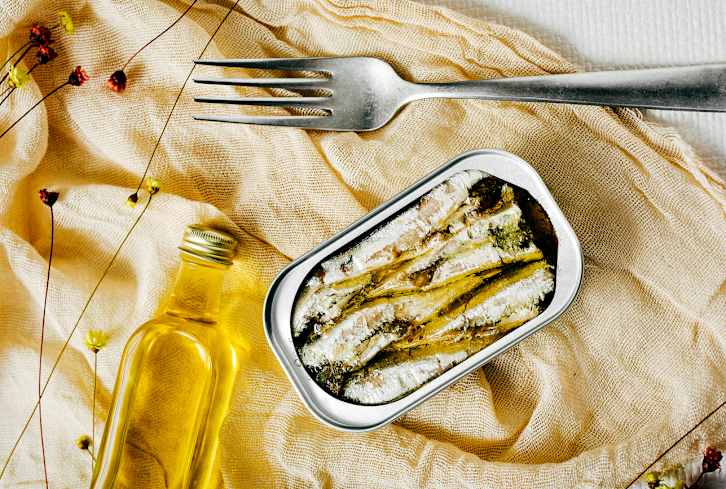Advertisement
The 6 Things Everyone Gets Wrong About Weight Loss (According To Margot Robbie's Nutritionist)


Weight loss is complex. It’s not just food and exercise. If you’re struggling to lose weight, you may fear that your body is betraying you, you’ve messed up your metabolism, or you'll have to live on chicken and broccoli for the rest of your life. None of these are true. Rather, the presiding weight loss equation of "calories in, calories out" is woefully inadequate. Other factors, such as hormones, sleep, inflammation, the gut microbiome, medication, unexpressed emotions, and genes all influence your ability to lose weight and keep it off. In the 12 years that I’ve been consulting with women on their physical body, I’ve come to the conclusion that the more complete weight loss equation is:
Change in Body Fat = Food + Movement + Hormones + Sleep + Gut Microbiome + Inflammation + Medication + Unexpressed Emotions + Genes
This equation should be empowering, not overwhelming. You have the ability to influence all of these factors, except your genes, but genes play the weakest role in the equation because of how your environment interacts with them. A clean diet makes cleaner genes.
As food and movement have been covered many times before, I won't address them here. Rather, I’ll briefly share tips on the remainder of the equation. I dive into more personalized tips in my book, The Archetype Diet, which matches four different body types with four different diets and discusses how self-worth affects your eating habits.
1. Hormones
When your weight increases unexpectedly, many of you jump to the conclusion that your thyroid hormones are off. Sometimes they are, and sometimes they’re not. While the thyroid hormones have a key role in regulating the metabolism, there are other hormones that affect weight gain and loss. These include insulin, glucagon, leptin, ghrelin, cortisol, adrenaline, and the sex hormones: estrogen, progesterone, and testosterone.
Here are the hormones that I want you to be particularly aware of:
- Insulin: This hormone is secreted by the pancreas to help get glucose into the cells. These cells include your liver and muscle cells so that you have energy to move around and exercise but also your fat cells. If you store body fat everywhere, then insulin is your dominant hormone, and you'll want to regulate these levels. This can be done by reducing your starchy carbohydrates and eating smaller meals (large meals trigger insulin too). Grain bowls are replaced with vegetable bowls, wraps are replaced with lettuce wraps, and cereal is replaced with a chia seed pudding. Not everyone has an issue with insulin, but if your body feels like it has a layer of body fat everywhere, then making these dietary changes can be very effective for you.
- Estrogen: If you store body fat on your upper thighs and butt, then estrogen is your dominant hormone. This typically means your body is not detoxifying estrogen as efficiently as it should, or excess carbohydrates are causing more available estrogen to circulate around the body. The more fat cells you have, the more estrogen in the body since fat cells secrete estrogen. The tip here is to eat a cup of cruciferous vegetables daily since these vegetables contain indole-3-carbinol, a phytonutrient that helps to metabolize and clear estrogen from the body. I also recommend taking 300 milligrams DIM daily to further support estrogen metabolism.
- Cortisol: If you have belly fat, cortisol, the stress-coping hormone, is to blame. You will benefit from a daily 20-minute meditation, as meditation helps to reset the body’s cortisol response. You can also take 200 milligrams phosphatidylserine before bed to help lower cortisol levels.
2. Sleep
Lack of sleep can increase hunger and food intake. In one study, women who got only four hours of sleep for four consecutive nights ate an extra 400 calories compared to their regular sleep days. Part of the reason for the increase in food is how the brain responds to carbs and fat after shortened sleep. When researchers used MRI technology to assess the brain activity in response to food and less sleep, there was more activity in the reward and hedonic areas of the brain and less activity in the prefrontal cortex, which helps control impulses. Reduced sleep can set you up for overeating...and it won't be with kale! Aim to get a minimum of seven hours of sleep a night. Take 300 milligrams of magnesium glycinate if you find it difficult to fall or stay asleep.
3. Gut microbiome
The wrong composition of gut bacteria can slow weight loss. Researchers have discovered1 that bad bacteria can extract more calories from your food, make you constipated (allowing more time for the bacteria to feast on the food in your stool), interfere with the enzymes that enable fat burning, change the appetite signals, and alter the genes that express how quickly you burn body fat. If you constantly feel bloated, then it’s probable that you have a gut microbiome imbalance. Start with a probiotic, but that alone will rarely resolve gut microbiome imbalances. Work with a functional medicine practitioner, like me, or naturopath to assess your gut microbiome, and if necessary, take antifungal herbs and enzymes.
4. Inflammation
The most common causes of chronic inflammation are your diet, food sensitivities, a gut microbiome imbalance, and elevated mercury. I want you to identify the root of the inflammation and correct it. Throwing back shots of turmeric juice to decrease the inflammation isn’t going to do much. Instead, increase your vegetable intake and cut out the junk (yes, easier said than done), cut out the most common food sensitives—gluten and dairy—for four weeks, resolve your gut microbiome imbalance (as discussed above), and have your mercury levels checked. If you have amalgam fillings and eat tuna several times a week, mercury could be the culprit.
5. Medication
Be aware that medication, in particular antidepressants, can cause weight gain. If you have gained weight after taking a medication, talk to your prescribing physician about an alternative option.
6. Unexpressed emotions
This is the most intriguing input into the fat loss/gain equation. It's often ignored because emotions can't be measured, but when my clients unexpectedly gain weight, the first question I ask them is, "Is there anything you're not expressing?" It could be a residual thought from an argument with a partner, a tense relationship with their mother, or something shameful from their youth. When researchers looked at obese patients that were scheduled for bariatric surgery, they discovered that 75 percent of them had experienced at least one adverse childhood experience, known as an ACE. ACEs cover emotional neglect, emotional abuse, divorce, sexual abuse, physical violence, and a family member going to jail. If something has upset you, don’t swallow it; let it out on paper, or speak to a friend or a therapist. If emotions are stuck inside you, the weight can also stay stuck.
As you can see, there are a multitude of factors that can contribute to weight gain and slow weight loss. But there is hope. Don't give up. Identify the most likely reason from this list and get to work on it. Sustainable weight loss isn't always easy, but it's far better than disliking your body for betraying you or feeling hopeless about your weight.
Want more nutrition info from Dana? She was on the mindbodygreen podcast, where she talked about gluten sensitivity, sugar addiction, and much, much more! Listen in here.


















